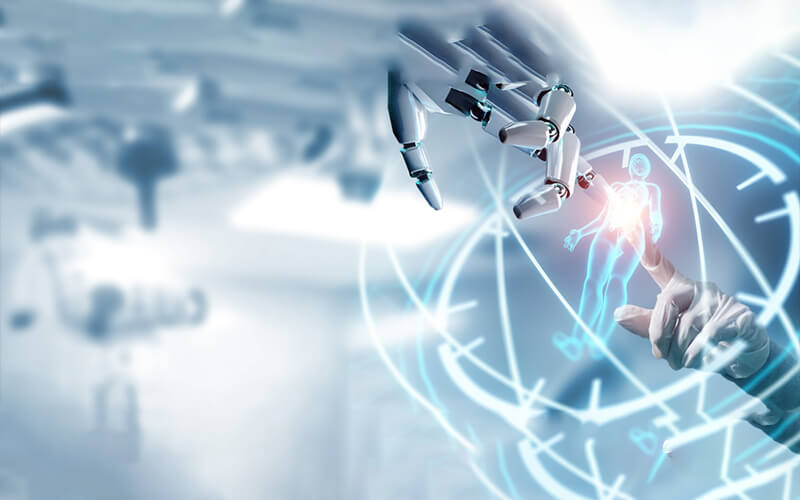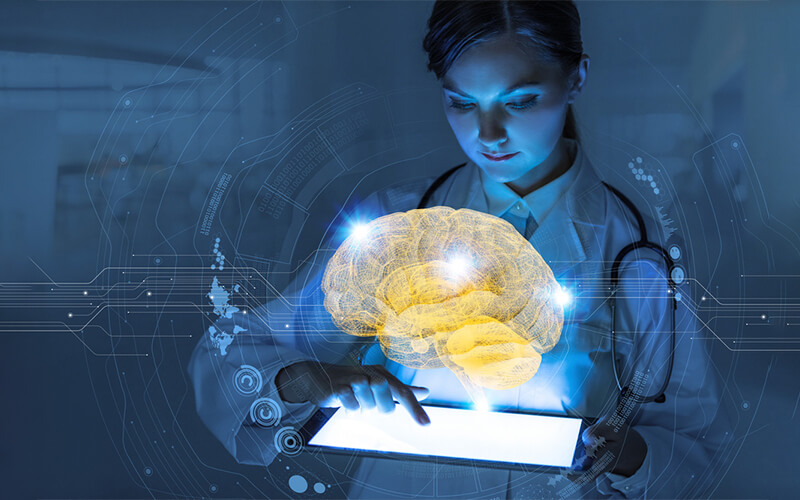Artificial Intelligence (AI) is driving significant change across many sectors, but its potential in healthcare is particularly profound. By merging the power of AI with the human touch of healthcare professionals, we are poised to revolutionize patient care and make critical advancements in medicine.
AI’s impact on healthcare spans numerous areas, from diagnosis and treatment to patient care and administration. In diagnostic settings, AI algorithms can analyze medical images or lab results faster and often with equal or superior accuracy to human clinicians. Take, for example, the AI-powered software that can detect cancerous tumors in mammograms or predict heart disease by analyzing eye scans. These innovations not only speed up the diagnostic process but also increase its accuracy, leading to improved patient outcomes.
AI is also transforming treatment planning. In the realm of precision medicine, AI can analyze a patient’s unique genetic makeup, lifestyle, and other health data to recommend personalized treatment plans. By tailoring treatment to each individual, we can improve its effectiveness and reduce the likelihood of adverse effects.
Moreover, AI is enhancing patient care. Virtual health assistants, powered by AI, can provide personalized health advice, remind patients to take their medication, or help them manage chronic conditions. Not only does this empower patients to take control of their health, but it also reduces the burden on healthcare professionals, allowing them to focus their attention where it’s most needed.
AI’s impact extends to administrative tasks as well. By automating time-consuming processes like scheduling appointments or managing patient records, AI can improve efficiency, reduce costs, and enable healthcare providers to focus more on patient care.
While the potential of AI in healthcare is immense, we must also navigate the challenges and ethical considerations it presents. For example, ensuring the security and privacy of sensitive health data is paramount. We also need to address potential biases in AI algorithms, which if left unchecked, can lead to disparities in healthcare delivery.
Moreover, the human touch remains an essential part of healthcare. AI should not replace healthcare professionals but should serve as a powerful tool in their hands. By enhancing their capabilities, not usurping their roles, we can ensure that AI is used to foster a more compassionate and effective healthcare system.
In conclusion, the incorporation of AI into healthcare signals a new era of medical advancement, marked by improved diagnostics, personalized treatments, enhanced patient care, and streamlined administration. As we embrace this revolution, our guiding principle should be the responsible and ethical use of AI, ensuring it serves to enhance human health and well-being. The journey is just beginning, and the destination promises to be transformative.



